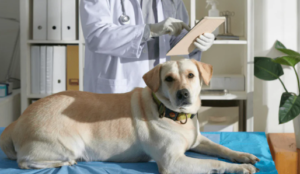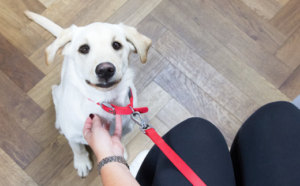Neutering is a significant decision for any dog owner. Beyond managing the pet population, it offers a range of health and behavioral benefits for your furry companion. In the UK, the cost of neutering can vary depending on multiple factors, and understanding these costs helps ensure you make informed decisions. This detailed guide will explore the procedure, associated costs, and ways to manage expenses.
What Does Neutering Involve?

Neutering refers to the surgical removal of a dog’s reproductive organs. For male dogs, this is called castration, where the testes are removed. For female dogs, the procedure is called spaying, involving the removal of the ovaries and usually the uterus.
Why Is Neutering Important?
Health Benefits:
- Reduces the risk of testicular cancer and prostate issues in males.
- Prevents uterine infections (pyometra) and reduces the risk of mammary cancer in females.
Behavioral Improvements:
- Decreases aggression and dominance-related behaviors.
- Reduces roaming tendencies in males, which can lead to accidents or getting lost.
Population Control:
- Helps reduce the number of unwanted litters and the pressure on animal shelters.
- Contributes to the overall welfare of pets in the UK by controlling overpopulation.
How Much Does Neutering a Dog Cost in the UK?

The cost to neuter a dog in the UK varies based on several factors, including the dog’s size, gender, and where you live. Below is a breakdown of the average costs:
Male Dogs (Castration):
- Small Dogs: £100–£150
- Medium Dogs: £120–£180
- Large Dogs: £150–£250
- Extra-Large Dogs: £250–£400 (Some breeds like Great Danes may fall into this category.)
Female Dogs (Spaying):
- Small Dogs: £150–£200
- Medium Dogs: £180–£250
- Large Dogs: £200–£300
- Extra-Large Dogs: £300–£500
Spaying tends to be more expensive than castration due to the complexity of the surgery and the time required.
Key Factors Affecting the Cost
Several factors influence the overall cost of neutering:
Dog Size and Weight:
- Larger dogs require more anesthesia and surgical resources, making the procedure more expensive.
Type of Clinic:
- Private veterinary clinics often charge higher fees.
- Charitable organizations and veterinary schools may offer discounted rates.
Location:
- Clinics in cities like London and Manchester typically charge more than those in rural areas.
Age and Health of the Dog:
- Older dogs or those with pre-existing conditions may need additional tests or monitoring, increasing the cost.
Extras Included:
- Some clinics bundle services like microchipping, vaccinations, or post-surgery check-ups into the price.
Affordable Neutering Options in the UK

For those concerned about the cost, several options can help reduce expenses:
RSPCA (Royal Society for the Prevention of Cruelty to Animals):
- Offers subsidized neutering services for pet owners on low incomes.
- Check with your local branch for eligibility and details.
Dogs Trust:
- Runs a neutering campaign with reduced rates for certain breeds and owners on government benefits.
Local Charities and Animal Welfare Organizations:
- Many regional charities provide low-cost or even free neutering services. For example, Blue Cross and PDSA have programs for eligible pet owners.
Veterinary Schools:
- Veterinary training schools often perform surgeries at a lower cost under the supervision of qualified professionals.
Payment Plans:
- Some private vets offer payment plans to spread the cost over time.
How to Prepare for Neutering

- Preparing for your dog’s neutering surgery ensures the procedure is smooth and stress-free. Here’s what you need to know:
Pre-Surgery Instructions:
- Your vet may advise fasting your dog for 8–12 hours before the surgery.
- Ensure your dog is healthy and has no underlying conditions.
Choose the Right Time:
- Dogs are usually neutered between 6–12 months of age, but this can vary based on breed and health.
- Females should ideally be spayed before their first heat cycle to maximize health benefits.
Comfort and Recovery Space:
- Prepare a quiet, comfortable space for your dog to recover post-surgery.
Post-Surgery Care
- Proper care after neutering is crucial for a speedy recovery. Follow these steps to ensure your dog heals well:
Monitor the Incision Site:
- Check daily for signs of infection, such as redness, swelling, or discharge.
Prevent Licking or Scratching:
- Use an Elizabethan collar (cone) to stop your dog from disturbing the surgical site.
Restrict Physical Activity:
- Avoid walks, running, or jumping for at least 10 days.
Follow-Up Visits:
- Attend scheduled check-ups to ensure proper healing.
Is Neutering Worth the Cost?

Neutering is a one-time investment that brings long-term benefits. It can prevent costly medical issues and reduce behavioral problems, making it a worthwhile decision for any dog owner.
Long-Term Savings:
- Lower medical expenses due to reduced risks of cancers and infections.
- Fewer behavioral issues that may require professional training or therapy.
- No unexpected costs from accidental litters.
FAQs About Dog Neutering in the UK
1. Can neutering affect my dog’s weight?
Neutering can lower a dog’s metabolic rate, so it’s essential to monitor their diet and ensure regular exercise to prevent weight gain.
2. How long does the procedure take?
The surgery itself usually takes 30 minutes to 1 hour, depending on the dog’s size and gender. Recovery times may vary.
3. Is neutering painful for dogs?
The procedure is performed under general anesthesia, so your dog won’t feel pain during surgery. Post-surgery discomfort can be managed with prescribed painkillers.
4. Can I neuter my dog at any age?
While younger dogs typically recover faster, adult dogs can also be neutered. Consult your vet for advice tailored to your dog’s age and health.
Final Thoughts
Neutering your dog is a responsible and beneficial decision for both your pet’s health and the wider community. While the costs in the UK can vary, affordable options exist through charities and welfare organizations. By understanding the procedure, preparing adequately, and following post-surgery care guidelines, you can ensure a safe and smooth experience for your furry friend.
If you’re considering neutering, consult your local vet or animal charity to explore your options. A healthier and happier life for your pet starts with responsible choices.
